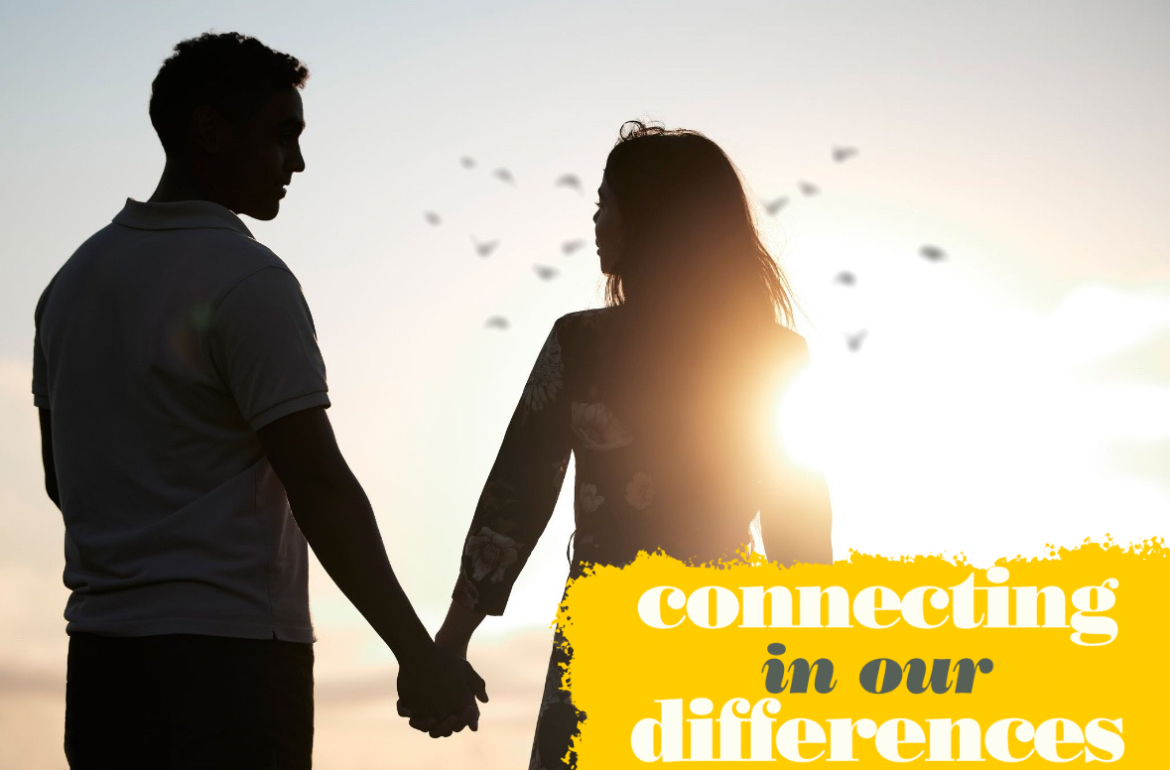Connecting in our differences
We all know what love is… right?
by Sandy C. Newbigging
Relationships can be such a tricky terrain to navigate because there are not even two people on Earth who are exactly the same and would agree on absolutely everything.
With different upbringings, cultures, languages, beliefs, values, perceptions, opinions, preferences and even Gods – we may live in the same house, city, country or world, but we are experiencing as many worlds as there are people.
One reason we are all unique is because we all have a unique collection of subconscious internal filters that are ‘editing reality’ to create our own unique ‘internal version’ of life. As a result, ‘assuming sameness’ and being unaware of everyone’s uniqueness is a hidden cause of countless relationship conflicts.
Failing to recognise this reality – that we are all unique – usually leads to disappointment, disagreement and distance between us. We assume we are the same and run into issues when we are inevitably not. Or worse, we believe that others should think, feel, believe, behave and ultimately be the same as us. But what if we aren’t meant to all be the same?
When hosting workshops, I’ve asked rooms of a hundred people to write a list of the first ten things that come to mind when they consider ‘what love is for them’. I’ve then picked someone at random to share their list with the group. On average, only two or three people in the entire room ever end up with a maximum of two or three same things on their list.
But we all know what ‘love’ is, right? Not exactly! We all have a unique ‘love list’ – what love is to us. So, if you are in a relationship, it can be both enlightening and beneficial to learn their list, and then aim to show love to in the ways that each of you uniquely experience ‘being loved’.
To relate better and connect more, you want to: 1) always remember we are all unique, 2) remain eternally curious to ensure you are genuinely seeing, hearing and understanding the other person properly, and 3) not just accept our unavoidable differences but embrace and celebrate them.
Through my therapy work I regularly witness the transformative power of someone feeling truly seen, heard, understood and accepted. It is deeply healing and more impactful than any advice I could give them or technique we could use on their problem.
One of my favourite quotes about this is by S. Kelley Harrell, who said: ‘We don’t heal in isolation, but in community’. In other words, connection is key and it comes from feeling that our unique self is fully seen, heard, understood, valid, accepted and entirely loveable.
To practise this vital skill in your relationships, get curious, ask questions, and check that you’ve seen, heard and understood the other person’s unique perspective and experience. “What I’ve heard you say is X, is that right?” You’ll be amazed by the response you get when others recognise your sincere desire to see, hear, and understand them. They light up, open up, share their truth, and perhaps most beautifully, they let you into their world.
Instead of the usual misunderstandings, disagreements and disconnections brought about by mind-reading, making assumptions, viewing differences as a bad thing, and expecting everyone to be like you, we connect at a deeper, more intimate level. Trust is born out of feeling safe, seen and accepted.
Visit sandynewbigging.com for Sandy’s one-to-one sessions, online courses and community


